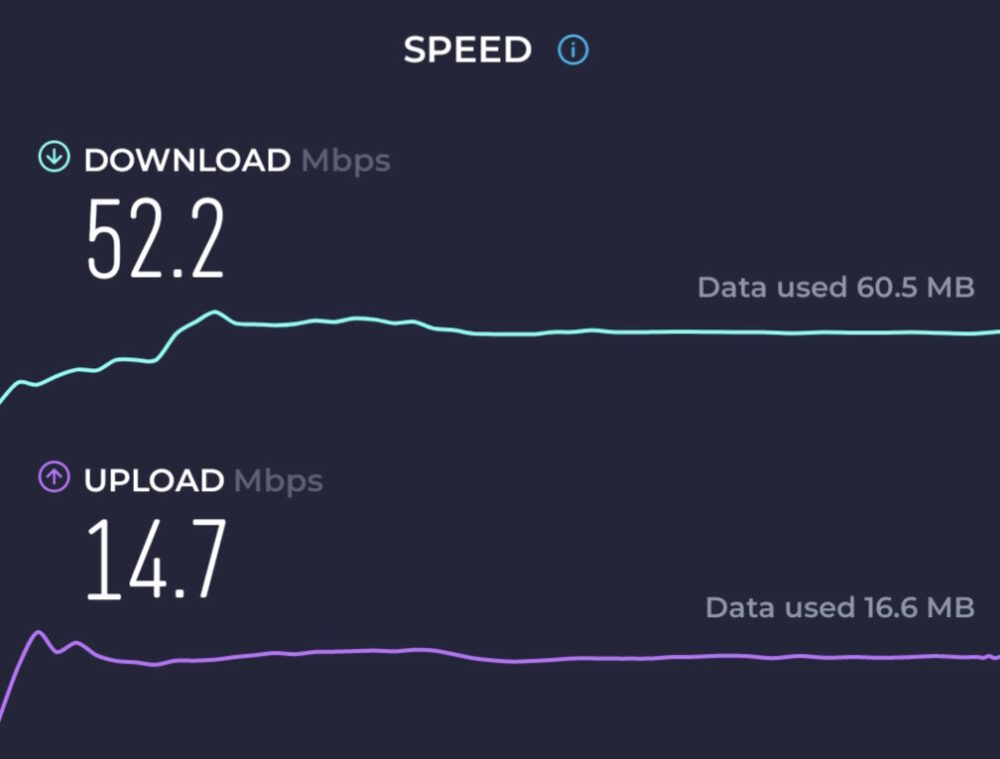Buying a SIM Card or eSIM in Turkey (Türkiye)
Articles on this site contain affiliate links, meaning I may be compensated if you buy a product or service after clicking them. The full privacy & disclosure policy is here.Jammed between Europe and Asia, Turkey has a culture and a vibe all its own. Large and diverse, the country offers a huge amount to travelers no matter where their interests lie.
Whether you’re exploring the stunning Aya Sofya or Blue Mosque in Istanbul, flying over Cappadocia’s remarkable caves and rock formations in a hot-air balloon, or simply relaxing at one of the country’s many Mediterranean resorts, your biggest problem will be fitting in everything you want to see and do!
While Turkey isn’t a particularly expensive place to travel in, you can’t necessarily say the same about staying connected as a tourist. Getting set up with a Turkish prepaid SIM card often isn’t cheap, especially because few vendors are prepared to sell them at the “official” price to foreigners.
As a result, I recommend buying a Turkey eSIM (discussed below) instead, so long as your device supports it and you don’t need a local phone number.
Once you’re set up, coverage is good and data speeds are reasonable, at least in the towns and cities. Here’s everything you need to know about buying a local prepaid SIM or eSIM as a tourist in Turkey.
Companies
There are three mobile operators in Turkey: Turkcell, Vodafone, and Türk Telekom.
Turkcell has the greatest coverage and most customers, and is the best option for most visitors to Turkey. It’s the company I chose to go with.
Vodafone sits in second place in terms of both coverage and subscribers. It’s a reasonable alternative if you need vast amounts of data, as it offers larger prepaid data package options than Turkcell.
Türk Telekom is the smallest operator, with the least coverage outside the major towns and cities. There’s no particular reason for travelers to go with it, unless you plan to only visit larger centres and happen to come across a particularly good price.
Note that all foreign phones will stop working 120 days after they’re first used in Turkey, unless you visit a tax office and pay a significant fee to register them. This won’t affect the vast majority of short-term visitors, but is something to bear in mind if you plan to return with the same device in the future.
It’s technically the IMEI that gets blocked, which is allocated per SIM card slot. If you have a dual-SIM phone, you can get around the problem by switching your SIM to the other slot after 120 days. You’ll otherwise need to use a different phone, or buy and use an unlocked mobile hotspot, on your next trip.
Travel eSIM for Turkey
If you only need data, travel eSIMs give you more flexibility about how much you buy than the tourist SIMs at the airport, and are noticeably cheaper as well. Of the companies I’ve used and would recommend, aloSIM usually has the best pricing for smaller amounts of data in Turkey, and Nomad for larger data packs.
They’re a lot less hassle to buy and install as well: you can do it in a few minutes before you leave home, and be ready to go as soon as you arrive. Put it this way, I’ll be using one next time I visit Turkey instead of dealing with pushy vendors and scams at the airport!
If you’re new to eSIMs, they offer big benefits to travelers in terms of how quickly, easily, and (often) cheaply you can get connected when you arrive in a new country. Most recent phones support them.
If you don’t need a lot of data or just don’t like being scammed, I’d strongly recommend getting one rather than buying a physical SIM card. The tourist SIMs only come with large amounts of data, and you’re charged a fortune for it whether you’ll use it or not.
How to Buy a Prepaid SIM Card in Turkey
All three operators have stores in the arrivals lounge at both the main Istanbul Airport and the more distant Sabiha Gocken, so if you’re after a physical SIM card, you don’t have to even set foot in the country without coverage.
This convenience doesn’t come for free, however. Rip-offs are rife, with operators charging dramatically higher prices at the airport than anywhere elsewhere. You’ll be pushed towards each company’s tourist SIM packages, which cost much more than the standard local rates to start with, and then likely be overcharged for them as well.
Need travel insurance for Turkey?
Need travel insurance for Turkey?
Even outside the airport, though, you may find vendors are unwilling to sell you any prepaid SIM packs except those aimed at tourists. Unless you speak Turkish, expect a fairly high registration fee to be tacked on as well.
You will need to show your passport to sign up for any plan. The salesperson (who is likely to speak decent English, as all the ones I chatted with did) will fill out the paperwork for you on the spot. They’ll also install the SIM card in your phone for you if necessary.
Prepaid SIM and eSIM Costs
Note that due to high inflation in Turkey, the prices of SIM cards (and everything else) are changing all the time. As a result, the prices and exchange rates from my last trip will almost certainly not match what you see when you arrive. Check before you purchase!
Turkcell
The Turkcell booths at Istanbul Airport (IST) offer a small range of tourist SIM packages. On my last visit, options ranged from 20GB of data with 200 minutes of local calls, through to a 105GB package with loads of calls and texts. All packages were valid for 30 days.
Even that smallest plan has far more data than most visitors will use, which would be fine if you weren’t being overcharged for it. Sadly, just like every other vendor and SIM card at the airport, it’s a rip-off. That 20GB pack cost 1000 TRY (~$31), while the 105GB version was 1600 TRY (almost $50).
Vodafone and Türk Telekom
The Vodafone booth has a somewhat larger range of options, but they’re even more expensive. It takes a lot to make Turkcell’s airport prices look vaguely reasonable, but Vodafone managed it.
A call/text package with 20GB of data from Vodafone (which was supposedly the smallest available) cost 1250 TRY (~$39). Shoot for the largest 500GB package, and you’ll be up for a hilarious 10,900 TRY (~$335)!
Türk Telekom’s airport price for a 10GB data package was 1100 TRY (~$34), or 20GB for 1200 TRY (~$37). That’s more expensive than Turkcell and slightly cheaper than Vodafone, and given the company’s smaller coverage area, it’s not worth considering.
Outside the Airport
You’ll find cheaper rates for all carriers by waiting until you get into the city and buying from a mobile store there. Exactly how cheap, however, will depend a lot on where you go, your negotiation skills, and how much of a fee the vendor decides to tack on. Expect to try more than one store, and be prepared for some frustration!
If you head into a Turkcell store outside the airport, you’ll likely be directed toward that same tourist SIM that’s being offered at the airport. It includes 20GB of data, 200 minutes of calls, and unlimited WhatsApp. There are several other local plans available, but I’ve found that most staff members aren’t very interested in selling them to you, even at the official stores.
aloSIM (eSIM)
Of the small number of travel eSIM companies that I recommend using, aloSIM typically has the fastest speeds, and the best prices for moderate amounts of data. If you’re only in Turkey for a short time, or need less than about 5GB of data for a longer stay, they’re the ones to go for.
Nomad sometimes has better pricing on large data packs, but doesn’t have as large a range. Check out the prices and options below when deciding which company to use: they were last updated on April 15, 2024.
Topping Up
Turkcell
Topping up is done via a voucher, purchased in supermarkets or at official provider stores all around the country. Plans keep renewing as long as there are funds in your account.
aloSIM
Topping up with aloSIM (or any of the other eSIM companies above) is done through logging into the website or app. You just select your Turkey eSIM, hit the top-up button, and pick whichever option sounds appealing.
All of the top-up packs have exactly the same pricing and duration as the original eSIMs: there’s little difference between topping up your current eSIM and buying a new one, other than not having to activate it.
Coverage and Data Speeds
Data speeds were very consistent throughout my stay, even in pretty terrible weather at times. 4G/LTE is present and reliable in all of Istanbul and any town or city of reasonable size, but less once you get into the rural regions of Turkey. Both upload and download speeds were acceptable everywhere I tested them.
Both aloSIM and Nomad also use the Tuckcell network, so you can expect similar coverage whichever option you go for.

Main photo via Pedro Szekely.







